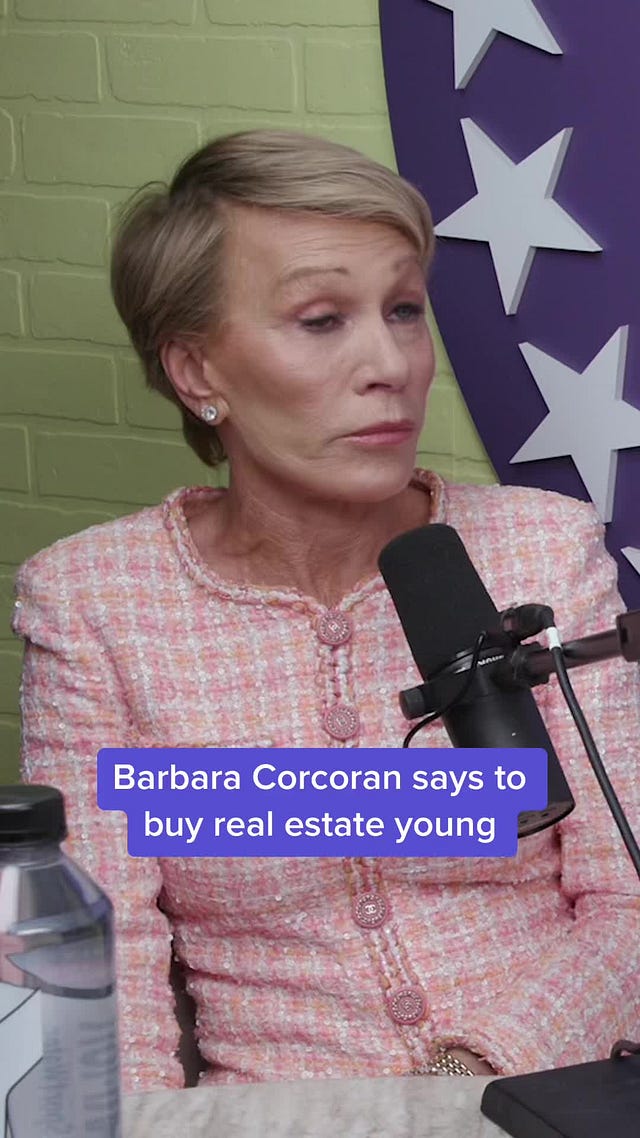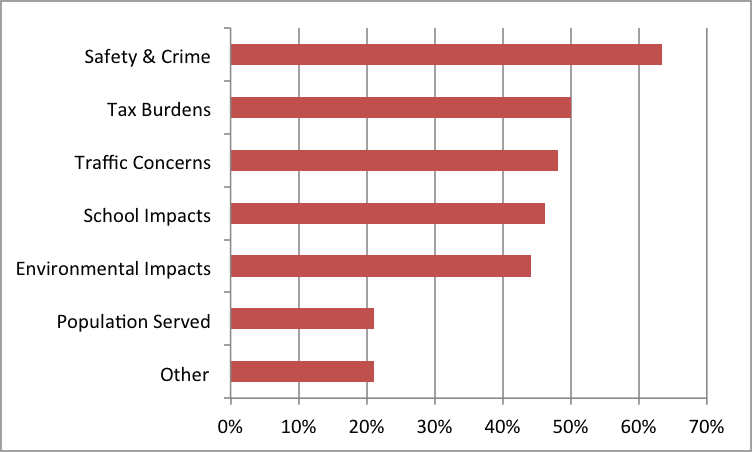Boomers Love Progress—Until It Moves Next Door
How Older Progressives Became the Biggest Roadblock to Housing Reform
A recurring issue of the current Democratic Party is our inability to properly push back against the status quo, and our reflexive defense of the establishment as is. This tendency has created a dangerous political blind spot, particularly when it comes to housing policy. The progressive credentials that once defined our movement have calcified into a shield protecting privilege rather than expanding opportunity.
So let’s talk about a very real problem that Democrats need to address: how older progressives—many of whom fought for change decades ago—are now standing in the way of the policies that younger generations desperately need today.
How Did We Get Here?
Progressive activism in the 1960s and 1970s led to landmark laws aimed at ensuring responsible growth. The National Environmental Policy Act (NEPA), the Clean Air Act, and the California Environmental Quality Act (CEQA) were all designed to protect communities from pollution, unchecked development, and displacement. These reforms were critical at the time, addressing the postwar era’s unchecked industrial expansion and urban renewal projects that often displaced neighborhoods without consideration for residents.
But over the decades, these laws have been reshaped—not to safeguard people from harm, but to block change. Cities once known for their dynamism—San Francisco, Los Angeles, New York—are now paralyzed by legal and bureaucratic barriers that make it nearly impossible to build housing at the pace needed. This is not reserved for just housing but any development that they do not deem worthy by subjective notions. In January 2023, Los Angeles Mayor Karen Bass discussed how easy it is to abuse CEQA, stating that back in the 90’s they used it to stop the development on buildings like liquor stores and cited “environmental reasons,” even though the reasoning behind it was not based on environmental fears: “It wasn’t environmental in the traditional sense, it was environmental in sense that it contributed negatively to the neighborhood.” This illustrates how widespread and flexible these legal tools have become in obstructing progress, often serving as a convenient pretext for those seeking to maintain the status quo.
As Yoni Applebaum has noted, one study used evidence from California that underscored when a city's share of liberal votes increases by 10 points, its housing permits typically decline by 30 percent. Local interest groups and affluent homeowners wield environmental reviews and zoning restrictions as tools of exclusion, stalling new developments under the guise of community protection.
The result? A housing crisis that grows worse every year. Families are priced out, homelessness rises, and younger generations are left struggling for stability—all while the people most invested in maintaining this broken system are the ones who already own their homes. The political generation that once championed reform now often stands in the way of the changes necessary to make their cities livable for the next.
These laws were designed to ensure responsible growth but have instead become obstacles to it. But today, they serve as roadblocks to affordability and sustainability. Reclaiming the promise of progressive policy means recognizing where these tools have been misused and reforming them to serve the public good—not just the interests of those who got in first.
We Can’t Let Mommy and Daddy’s Money Be Our Only Solution
This divide is further reflected in recent reporting on the "Great Wealth Transfer," which highlights how boomers are passing down trillions of dollars, often in the form of real estate assistance. More than 50 percent of this wealth remains concentrated in the hands of the top 2 percent, exacerbating the disparity between those with access to family money and those without. Realtors acknowledge that nearly all first-time buyers in high-cost cities like New York require parental assistance, making it clear that without significant zoning reform and housing policy changes, homeownership will remain an inherited privilege rather than an attainable goal for the broader public.
This dynamic was perfectly illustrated when Barbara Corcoran accidentally went viral for stating that no one should feel ashamed to take money from their parents to buy a home—that it was simply the only way to do so—and dismissing renting as a waste of money. The backlash was immediate, with comments flooded by younger generations sarcastically responding, “Ah! I should have just been born into wealth!” capturing the growing frustration with a system where economic mobility is increasingly determined by birthright rather than effort.
 Tiktok failed to load.
Tiktok failed to load.Enable 3rd party cookies or use another browser
Public Hearings or Public Roadblocks?
The broken public hearing process for new housing developments plays a key role in this crisis, often serving as a tool for well-connected homeowners to block new construction rather than fostering genuine community input. Research shows that participants in these hearings tend to be older, wealthier, and more opposed to new development than the general population, distorting the decision-making process while renters and prospective homebuyers—the people most affected by the housing shortage—lack a voice.
As Max Holleran documents, YIMBY groups found that zoning meetings were “only attended by older people speaking out against development plans,” creating an opening for pro-housing activists to challenge this imbalance. Importantly, these conflicts often arise between groups that would otherwise be political allies, with opposition coming not from “country club types” but from “70-year-olds with an Obama sign in their front yard.”
The most commonly cited reason for resisting new development is safety, yet there is no research to support these claims—highlighting how personal fears and biases, rather than evidence, shape housing policy.
Image Credit: Shelter Force
This obstructionism does more than just block new housing; it deepens wealth disparities by ensuring that homeownership remains an inherited privilege, exacerbates homelessness by limiting supply, and fuels political disillusionment among younger generations who see a system rigged against them. By prioritizing vague concerns over "neighborhood character" or unproven safety fears, these public hearings uphold exclusionary policies under the guise of progressive values—while ensuring that the next generation has fewer opportunities to live, work, and thrive in the communities their predecessors now gate keep.
How housing policy fuels right-wing populism
As William G. Howell and Terry M. Moe note in "Presidents, Populism, and the Crisis of Democracy," "Populists don't just feed on socioeconomic discontent. They feed on ineffective government — and their great appeal is that they claim to replace it with a government that is effective through their own autocratic power." This encapsulates how progressive failure to address housing supply has opened the door for right-wing populists to propose harsh immigration restrictions as a "solution" to the housing crisis. Rather than reforming restrictive zoning and environmental reviews to allow more housing construction, their answer is deportation and exclusion. They forget the very people they would like to deport are also some, if not most, of the ones building actual housing, but I’ll save that piece for another time.
The irony is that if older progressives would support increasing housing supply and reforming burdensome regulations, they would help undercut part of this xenophobic narrative at its source. Instead, their resistance to development inadvertently provides fodder for the very forces they claim to oppose. The same generation that once fought against exclusionary policies now defends them, albeit in more sophisticated language. They speak of "neighborhood character" instead of explicit exclusion, of "environmental review" instead of "not in my backyard." But the effects are the same: young people priced out, families displaced, communities segregated by wealth and race.
So, now what?
The solution is to ensure responsible growth that expands opportunity rather than constraining it. This means:
Reforming environmental reviews to prioritize actual climate impact over aesthetic concerns, with a streamlined review process to avoid overuse
New administrative changes have begun to tackle this, I suggest reading Green Tape by Thomas Hochman on this.
Acknowledging that true progressive values demand change, not just preservation
Creating clear, uniform standards that apply equally to all neighborhoods, preventing wealthy areas from pushing development onto poorer communities
People need something to believe in, and right now, thanks to well-intentioned policies run amuck from past generations, young people feel as though the "American Dream" is out of reach. While we could cite impressive GDP numbers or economic indicators, the recent election showed us that no spreadsheet in the world can talk to someone's lived experience.
The path forward requires Democrats to both challenge their own and embrace practical reforms. This means being willing to stand up to progressive homeowners who block development while also advancing specific policies that can make housing more affordable. My colleague Gary Winslett highlights reforms that could get us there in our recent roadmap:
Allowing mixed-use development in commercial areas, which could add over a million new homes just by redeveloping 20% of underutilized commercial corridors
Reforming zoning to allow duplexes and triplexes in residential areas - as Oregon demonstrated with HB 2001, this can significantly increase housing supply while maintaining neighborhood character
Eliminating parking mandates that drive up costs - Buffalo saw over 1,000 new units built after becoming the first major city to eliminate these requirements
Supporting innovative building approaches like mass timber construction and single-stair designs that can reduce costs while maintaining safety
Expanding accessory dwelling units (ADUs), which have grown to represent one-fifth of all new housing units in California after reforms
The Democratic party stands at a crossroads. It can continue down its current path, where the rhetoric of inclusion masks the reality of exclusion. Or it can embrace these practical reforms while standing up to those within its ranks who resist change. The choice will determine not just the future of democratic politics, but whether younger generations can build the kind of just, sustainable communities their elders once fought for.







